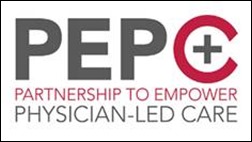EPtalk by Dr. Jayne 8/23/18

Big news for the clinical informatics community last week, as the American Board of Preventive Medicine announces that Diplomates no longer have to maintain a primary medical board certification when they apply to recertify for clinical informatics. This also applies to those certified in addiction medicine, and really is a win for those of us who don’t practice traditional clinical medicine any more but still want to remain board certified in clinical informatics. ABPM already allowed this to happen with the subspecialties of undersea / hyperbaric medicine and medical toxicology, so it’s not clear why there was a disconnect in the first place. The policy becomes effective on January 1, 2019.
I still practice and have to sit for a re-certification exam next year and am not looking forward to re-learning all the areas that will be tested that I no longer practice, such as obstetrics. It will also be my first time using a totally online prep strategy, so we’ll have to see how that goes.
From Change in My Pocket: “Re: NYU’s free medical school tuition offer. What’s your take on it?” I agree with some of the naysayers. I’m not sure it’s going to have the desired effect. I went to medical school with plenty of students who were from families that paid for their medical school expenses outright and it didn’t drive them into the ranks of primary care. Lifestyle is a major factor in choosing a medical career, as well as earnings potential. Those aren’t going to be significantly altered by free tuition, although it may reduce the number of 15-year-old Honda Accords in the physician parking lot since that seems to be the vehicle of choice for primary care physicians who are still paying off their student loans.
Being a primary care physician is extremely demanding mentally and emotionally as well as temporally, especially if you practice full-spectrum primary care including hospital and taking your own after-hours call. Most of the PCPs I know don’t take the traditional day or half-day off each week like the proceduralists do. Yes, I know most workers don’t get a half day off each week, but that’s how it often works in the medical world (to make up for things like weekend call, after hours call, etc.) and primary care definitely feels the squeeze.
There’s also the lack of respect from colleagues who make comments about “you’re just the primary” or view us as simply gatekeepers who are there to make sure they have a referral base. Free tuition isn’t going to make being a primary care physician sexy, especially since a good chunk of the population is OK with receiving their care from nurse practitioners at retail clinics or from a revolving-door cast of primary physicians that they see over time as their insurance coverage changes.
For me, a few things would make bring a primary physician exciting again. First, salary potential. I have a number in my head that if I could make it as a primary care physician without working 80 hours a week, I would jump at it.
Second, wider networks that allow patients to actually remain with a continuity physician for 10, 20, or 40 years. I would see patients for a year or two, then they’d have to change to the other hospital in town’s network, then their insurance would change, and they’d be back again. I had a dream of seeing patients for their entire lifespan and it just wasn’t reality. But when you could keep a patient for five or more years, it was gold. I’m still friends with some of those patients even though I’m long past being their physician.
Third, fewer insurance hassles and more trust of honest physicians. In my career as a solo physician, I was never denied a treatment that I requested through pre-certification. My orders were justified 100 percent of the time, not only by medical evidence, but by the insurance reviewers. When you have a physician who meets the criteria, can’t we perhaps back off on the pre-certification nonsense? I could have slimmed down at least 0.5 FTE on my balance sheet if I didn’t have to deal with pre-certification and pre-authorization. Sure, there are bad guys out there, but find them and stamp them out — don’t punish the good guys.
I don’t even mind the CEHRT or reporting hassles as long as there are decent EHRs out there. I’d be willing to take those extra clicks if the above conditions could be met. I loved my patients and miss many of them dearly. I felt like I was doing good for my relatively underserved community. I got to do fun things like ride on a float in the Founders’ Day parade. I cried with them when it was sad, went to funerals and hugged their widows, and celebrated when their kids got married. I even caught some babies. But I also worked a lot of late nights dealing with bureaucracy and silliness until finally the siren song of healthcare IT lured me away.
I do have patients who try to have continuity with me in the urgent care environment and will call around to see if I am working at a particular location when they need care. I’m lucky that I can stay in the industry and try to work for change from another angle, but many primary care docs give up when faced with the career they have not being what they thought they signed up for.
The article brings up a couple of interesting points about NYU and their offer. Their freshman class is only 102 students, down from 120-130 previously. Its students are in the 99th percentile for both GPA and MCAT scores. These are not “average” medical students, and in my experience, students with that kind of street cred are typically bound for high-profile subspecialties like orthopedic surgery, plastic surgery, interventional cardiology, etc.
Medical school admissions are very competitive, with only 41 percent of applicants being admitted. My practice employs scribes and previously most of them were applying to med school. This year, nearly all of them applied to and were admitted to physician assistant school. It’s perceived as a way to basically do the same thing as a physician, but in less time and for less money.

Earlier this week I attended a Medicare Shared Savings Program webinar hosted by the Partnership to Empower Physician-Led Care, which advocates for independent physicians and practices as they transition to value-based care. They put together a nice summary of the proposed Medicare rule and the changes it will bring for independent practices. Overall it should be good for physician-led Accountable Care Organizations. Comments on the proposed rule are due October 16, 2018 and we expect a final rule in early 2019. Delays in rule-making could mean that programs can’t start until mid-2019, which should make for some interesting half-year reporting. According to panelist (and not-so-secret Dr. Jayne crush) Farzad Mostashari, it will probably take 100 pages of regulations to sort out the half-year issue.

What’s your favorite bowtie? Send a pic – email me.

Email Dr. Jayne.


Wayne Gillis' LinkedIn post. Neither Rehoboth McKinley or Great Falls Clinic is on Epic. Did he miss a workplace on…